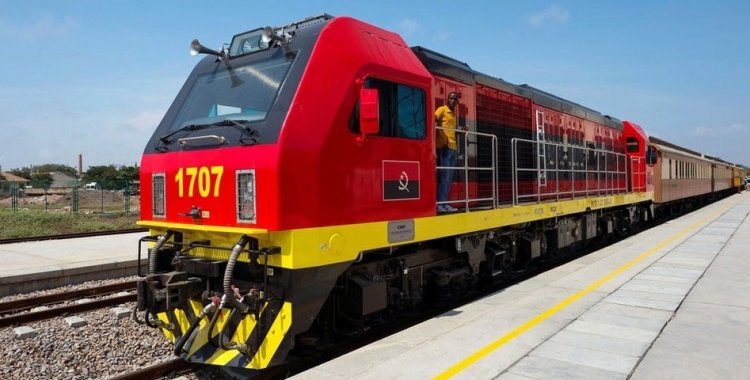The Lobito Corridor concession was awarded by the Angolan Government to the company LAR - Lobito Atlantic Railway, a consortium of companies made up of the Swiss Trafigura, the Portuguese Mota-Engil Engenharia e Construção África SA, and the Belgian Vecturis SA, for a period of exploration 30 years old.
The Lobito Corridor crosses Angola and covers more than 1300 kilometers, connecting the coast, from Lobito, to the eastern border with the Democratic Republic of Congo.
Job de Sousa recalled, in statements to the Lusa agency, that the Lobito Corridor, since the colonial period, was one of the main export centers for mineral products and agricultural products in the region, remaining paralyzed for a few years for various reasons, with the Government having made an investment of over three billion dollars for the recovery of this infrastructure.
The expert highlighted, as the first point of importance of the corridor, the transition of goods from countries to the Angolan coast, namely from Zambia and a large part of the Democratic Republic of Congo (RDCongo), thus no longer using other countries by road to the import and export of products, at a more competitive cost.
"Then, the fact that it circulates in four provinces of Angola could then allow, internally, for there to be effective commercial exchanges or for national entrepreneurs and producers to be able to transit their products and merchandise across the provinces at a more competitive cost," he added.
According to Job de Sousa, large production units may be installed along the corridor, so that they can export or transport goods from one country to another, highlighting that, in the first phase, the Lobito Corridor focuses on the transport of mineral resources.
In addition to the challenge on the part of the Angolan Government to invest in logistics platforms along the Lobito Corridor, with at least three planned, Job de Sousa considered it important to attract large-scale international investors for "a desired operationalization", pointing out countries such as Japan, China, the United States of America and European states as potential interested parties.
The economist highlighted that data indicates that the Lobito Corridor could have an annual contribution to the Gross Domestic Product (GDP) in the order of 1.5 billion dollars to 3 billion dollars.
"For this to happen, it is necessary to look at a scale of attracting large-scale investments, for example, today with the cereal industry it can also be a major challenge in attracting investors who can invest in the agri-food sector and thus using the Lobito Corridor", he stressed.
Admitting that mineral resources have been the main attraction of foreign investment in the Lobito Corridor, the economic analyst highlights that the US is making large investments in that corridor, because "minerals such as copper and cobalt are extremely important for the energy transition".
"Countries like the USA, China, Japan and Europe are effectively the major beneficiaries of these minerals today, because the world is making the energy transition (...) and the fact that they have these minerals at a more competitive international market price, via the Lobito Corridor, this energy transition process will naturally be more accentuated", he said.
"Angola will also benefit from this, indirectly, because it does not have great potential for these resources, but it is expected that provinces like Cuando Cubango will also be able to export some minerals throughout this process," he said.







